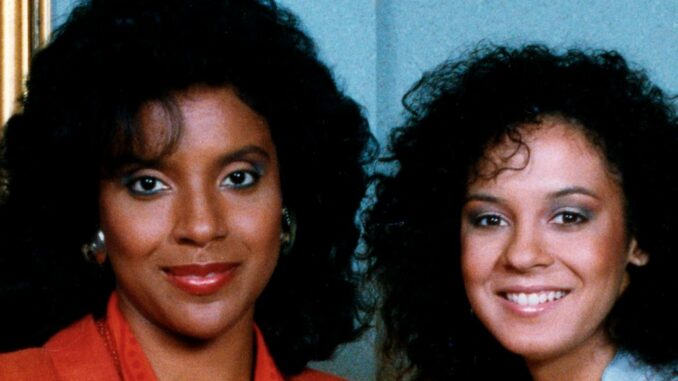
When The Cosby Show premiered in 1984, it not only transformed the landscape of television but also brought together a remarkable cast whose talents would leave an indelible mark on American culture.
Among them, Phylicia Rashad and Sabrina Le Beauf stood out, each representing a unique aspect of Black womanhood and family dynamics. At 36, Rashad brought an air of sophistication and experience to her role as Clair Huxtable, while 26-year-old Le Beauf infused youthful energy and charm as Sondra Huxtable. Together, they illustrated the power of diverse representations of women on television.
Phylicia Rashad’s portrayal of Clair Huxtable was groundbreaking in many ways. At 36, she embodied the essence of a modern Black woman—intelligent, accomplished, and loving. Rashad’s character was a Harvard-educated lawyer who balanced her career with the demands of motherhood, breaking stereotypes that often confined Black women to secondary roles. Clair Huxtable was not just a supportive wife; she was a formidable force in her own right, commanding respect and admiration both within her family and from the audience.

Rashad’s performance was characterized by grace and strength. She brought a depth to Clair that resonated with viewers, showing the complexities of being a mother and a professional in a society that often placed women in rigid boxes. Her age allowed her to infuse wisdom and relatability into her role, making Clair an iconic figure in television history. Rashad’s ability to navigate humor and heartfelt moments made her character a beloved matriarch, establishing a template for future representations of Black families.
Le Beauf’s youthful energy complemented Rashad’s seasoned presence, creating a dynamic family environment that resonated with viewers of all ages. Their interactions highlighted the generational differences between a mother and daughter, illustrating how love and understanding can bridge those gaps. Through Sondra, Le Beauf explored themes of independence, ambition, and self-discovery, encouraging young audiences to pursue their dreams.
The chemistry between Rashad and Le Beauf was palpable, and their collaborative performances added depth to the show’s narrative. By presenting a multi-dimensional family structure, The Cosby Show challenged existing stereotypes of Black families in media. Rashad and Le Beauf’s characters illustrated that Black women could be both nurturing and ambitious, sophisticated and relatable.
Their performances also played a significant role in fostering discussions about family dynamics, gender roles, and cultural identity during a pivotal time in American history. As the nation grappled with issues of race and representation, the characters they portrayed provided a much-needed counter-narrative, showcasing the diversity of experiences within the Black community.
Their collaboration not only redefined the roles of women in media but also inspired viewers to appreciate the complexities of family life and the strength found in diverse experiences. In celebrating their contributions, we recognize the lasting impact of The Cosby Show in promoting a richer understanding of Black identity and family dynamics in America.
